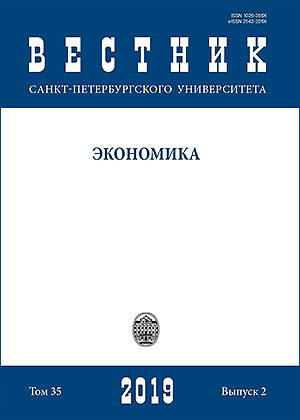Keynes vs. Hayek Debates: Rethinking in the Light of Contemporary Macroeconomics
DOI:
https://doi.org/10.21638/spbu05.2019.206Abstract
The article discusses the scantily explored aspects of the Keynes-Hayek debate and outlines the possible directions of the impact of the debate on modern macroeconomic issues. The main research method was content analysis. The article examines the theoretical systems of Keynes and Hayek and the following recommendations regarding macroeconomic policies. In accordance with the traditional approach, the debaters are ardent opponents. The article shows that their views on some important aspects of the economy, which until recently remained on the periphery of the attention both of theorists and politicians, are the similar. We are talking about the radical uncertainty of the future, the importance of the psychological factors in the formation of economic agents’ confidence, and the theory of knowledge. A comparison of the authors’ approaches to the business cycle and the role of uncertainty in business processes is presented. The article considers Hayek’s critique of the Keynes’s “Treatise on Money” and approaches to explaining the lack of the same direct critique of the “General Theory of Employment, Interest and Money”, while arguments against the new theoretical constructs of the opponent were proposed. Hayek’s theory of evolution contradicts to Keynes’ refusal to consider a long-term period. The opinion was expressed that the reassessment of economic policy tools through the prism of the trust and knowledge could lead to a concentration of research in the field of the theory of knowledge and reduce the formalization of science in favor to an increase the share of cause-consequence analysis, preferred both by Keynes and Hayek.
Keywords:
Keynes, Hayek, keynesianism, Austrian school, macroeconomics
Downloads
References
References in Latin Alphabet
Translation of references in Russian into English
Downloads
Published
How to Cite
Issue
Section
License
Articles of the St Petersburg University Journal of Economic Studies are open access distributed under the terms of the License Agreement with Saint Petersburg State University, which permits to the authors unrestricted distribution and self-archiving free of charge.







